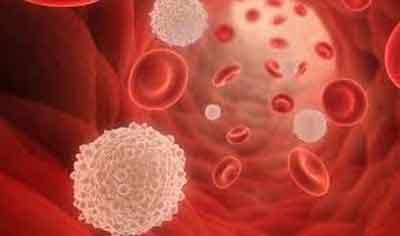- Home
- Editorial
- News
- Practice Guidelines
- Anesthesiology Guidelines
- Cancer Guidelines
- Cardiac Sciences Guidelines
- Critical Care Guidelines
- Dentistry Guidelines
- Dermatology Guidelines
- Diabetes and Endo Guidelines
- Diagnostics Guidelines
- ENT Guidelines
- Featured Practice Guidelines
- Gastroenterology Guidelines
- Geriatrics Guidelines
- Medicine Guidelines
- Nephrology Guidelines
- Neurosciences Guidelines
- Obs and Gynae Guidelines
- Ophthalmology Guidelines
- Orthopaedics Guidelines
- Paediatrics Guidelines
- Psychiatry Guidelines
- Pulmonology Guidelines
- Radiology Guidelines
- Surgery Guidelines
- Urology Guidelines
Scientists discover new types of white blood cells

London : Scientists have identified new sub types of white blood cells in the human immune system.
Researchers, including from New York University, Harvard University and MIT's Broad Institute, have identified two new dendritic cell sub types and two monocyte sub types. They have also discovered a new dendritic cell progenitor.
The team used a technique called single-cell genomics to analyse gene expression patterns in individual human blood cells. Previously, different types of immune cells were investigated and defined by the set of marker proteins they express on their surface.
This new technique is much more powerful and can reveal previously unrecognised and rare cell types.
"Two important white blood cell types in our bodies help defend us from infection dendritic cells and monocytes," said Divya Shah, from medical research charity Wellcome Trust's infection and immunobiology team.
"In this study, scientists have used cutting-edge technologies to find that there are many more types of cell than we originally thought.
"The next step is to find out what each of these cell types does in our immune system, both when we're healthy and during disease," said Shah.
The finding was published in the journal 'Science'.

Disclaimer: This site is primarily intended for healthcare professionals. Any content/information on this website does not replace the advice of medical and/or health professionals and should not be construed as medical/diagnostic advice/endorsement or prescription. Use of this site is subject to our terms of use, privacy policy, advertisement policy. © 2020 Minerva Medical Treatment Pvt Ltd